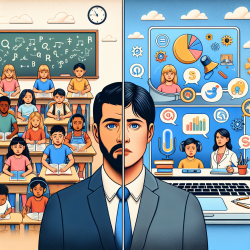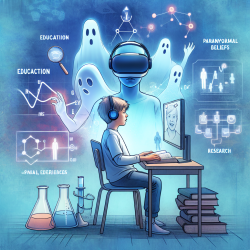Introduction
As professionals dedicated to creating optimal outcomes for children, it's crucial to continuously refine our skills and approaches. The research article, "The Role of Operators in Sustainable Whale-Watching Tourism: Proposing a Continuous Training Framework," provides insights that can be leveraged to enhance our practices in speech-language pathology, particularly in the realm of online therapy services like those offered by TinyEYE.
Understanding the Research
The study focuses on the role of operators in sustainable whale-watching tourism, emphasizing the need for continuous training frameworks. This approach ensures that operators are well-informed about the impacts of their activities on marine ecosystems and are equipped with the necessary skills to mitigate negative effects. By applying a similar framework to our field, we can enhance the effectiveness of our interventions and improve outcomes for the children we serve.
Implementing Continuous Training Frameworks
Continuous training frameworks are not just applicable to whale-watching operators but can be adapted to any professional field, including speech-language pathology. Here are some key takeaways from the research that can be applied to our practice:
- Regular Training Sessions: Just as whale-watching operators benefit from ongoing education about marine impacts, speech-language pathologists can enhance their skills through regular training sessions focused on the latest research and techniques in the field.
- Stakeholder Involvement: The research highlights the importance of involving all stakeholders in the training process. For us, this means collaborating with educators, parents, and other healthcare professionals to create a comprehensive support system for the children.
- Data-Driven Decisions: By using data to inform our practices, we can ensure that our interventions are evidence-based and tailored to the specific needs of each child, much like how operators use data to assess their impact on marine life.
Encouraging Further Research
The study serves as a starting point for exploring how continuous training frameworks can be applied across various fields. As practitioners, we should be encouraged to conduct further research into how these frameworks can be tailored to the unique challenges and opportunities within speech-language pathology.
Conclusion
By adopting a continuous training framework, we can ensure that we are always at the forefront of our field, providing the best possible outcomes for the children we serve. This approach not only enhances our skills but also fosters a culture of lifelong learning and professional growth.
To read the original research paper, please follow this link: The role of operators in sustainable whale-watching tourism: Proposing a continuous training framework.










